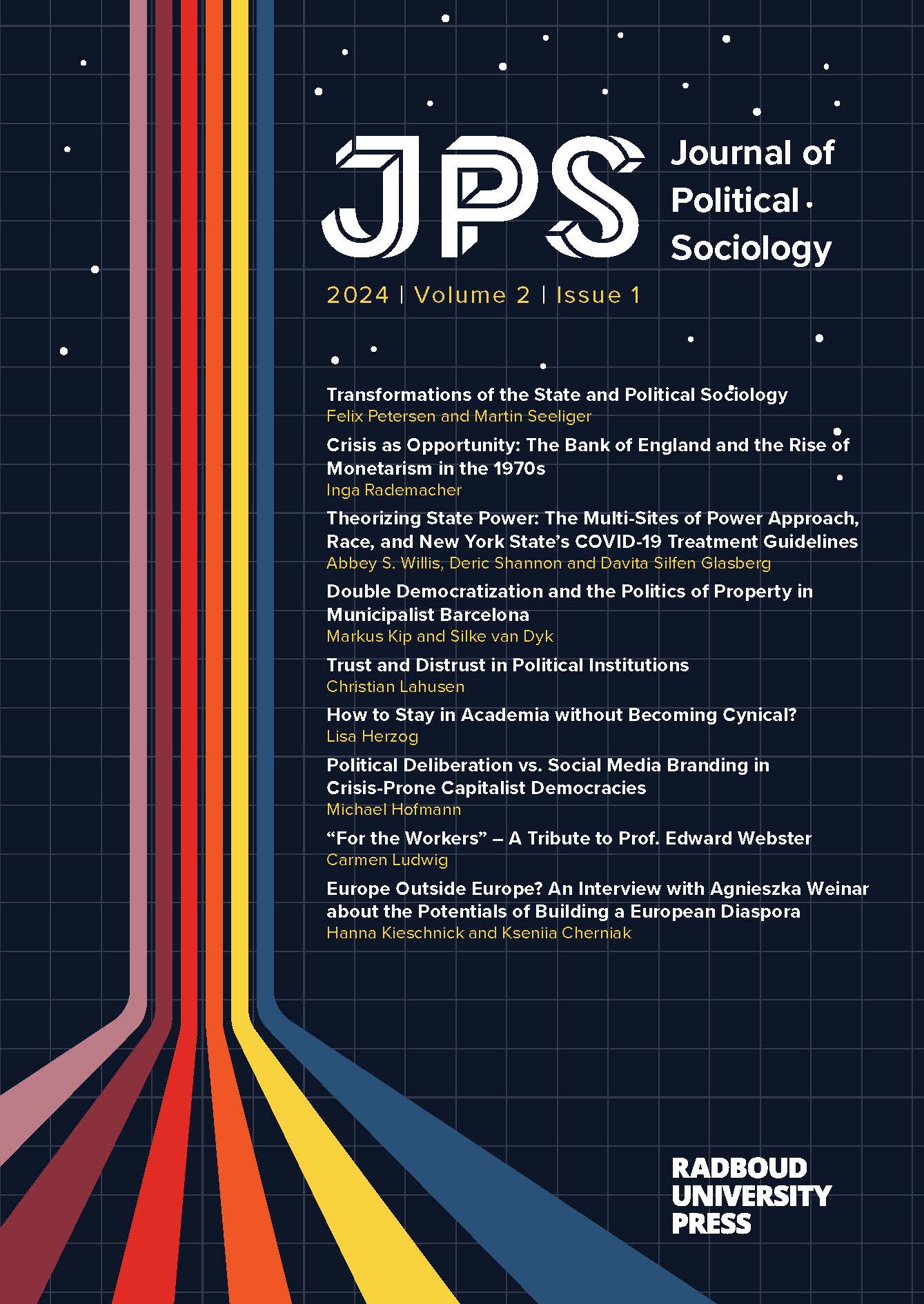Double Democratization and the Politics of Property in Municipalist Barcelona
DOI:
https://doi.org/10.54195/jps.17837Keywords:
municipalism, new municipalism, property, urban politics, commons, remunicipalization, municipalization, public procurement, public-commons-partnerships, public-civic-partnershipsAbstract
This contribution proposes a conceptual lens on analyzing the political engagements with property by the new municipalist government of Barcelona (2015-2023) as a two-pronged approach to democratization: On the one side, the municipalists intended to strengthen public authority vis-à-vis property; on the other side, the objective was to build democratic capacities among civic, cooperative and administrative actors and promote grassroots-based collective decision-making around local resources. Three examples show the differentiated application of this double democratization, as well as the political and legal obstacles faced: the attempted municipalization of water management, the regulation of private property through public procurement and the cession of publicly owned sites for civic self-management. The critical contribution of the article is to reflect on these cases and show how multiscalar relations of property pushed themselves in front of the “politics of proximity”, thus compromising the foundation that the municipalists sought to build on.



